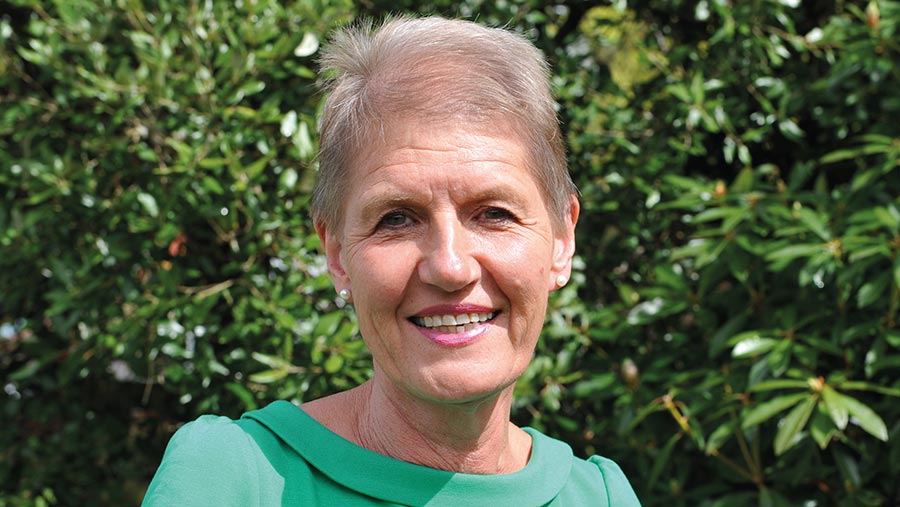Wales’ retiring chief vet looks back on 17-year tenure
 © Debbie James
© Debbie James In the week that Christianne Glossop leaves the post of Wales’ chief vet, avian influenza is raging through poultry flocks and there are some 700 or so bovine TB breakdowns in Welsh cattle herds.
But, while formulating and delivering government policy on highly pathogenic diseases comes with many challenges, Prof Glossop thinks Wales-specific strategies for tackling some of these have been good for animal health and welfare.
“I think that devolved powers have really made a difference. We have been able to focus on what is important, but in a responsible way, making sure we are still connected with the rest of the UK.”
See also: Could thermal imaging transform livestock health management?
She cites Wales’ bovine viral diarrhoea eradication programme as an example, and believes the country is “absolutely leading the field” on antimicrobial resistance.
Bovine TB
And then there is bovine TB, a thorny issue with Welsh farmers, with the approach to eradication at odds with England, where large-scale badger culls have underpinned disease controls.
Prof Glossop says biosecurity, movement restrictions and annual testing have reduced the incidence of bovine TB in Wales by 40% in the past 12 years – achieved through collaboration between government, private vets and farmers.
But she admits there is a “long way to go”. “There are still between 600 and 700 TB breakdowns in Wales right now, we need to carry on developing the programme to tackle infections in those farms.”
Could more be done to control the disease in wildlife? Prof Glossop insists it already is, referencing badger vaccination programmes.
“If we look at the Intensive Action Area, where we doubled the frequency of TB testing, worked with farmers on biosecurity, and then vaccinated badgers for several years, the level of TB in that area is better than anything it is surrounded by, and has been sustained for a long time.”
Avian influenza
On the issue of avian influenza, the prospect of the disease becoming endemic in the wild bird population is “concerning”.
“Sometimes viruses burn themselves out, a bit like human flu viruses.
“We would like to think that might happen, that infected wild birds would die and then the birds that survive will have fought off the infection.
“But we are still picking up dead wild birds across the whole of Great Britain.”
Although vaccination of poultry is mooted as a way forward, Prof Glossop is not convinced.
“If you think about the size of some of the flocks of birds that we have, and with the currently available vaccines, they would have to have two doses. That’s a massive thing to do.”
And then there is the question of which vaccine to use. “We have got H5N1 at the moment, but we have had a season of bird flu before where we have had four or five different strains,” she points out.
New facilities
Under her watch, an array of new animal health facilities have been established at Aberystwyth, including the TB Centre of Excellence and Aberystwyth School of Veterinary Science.
Prof Glossop dismisses any suggestion that these and other areas of progress made during her years as chief vet are a personal achievement.
“I would never want anyone to even think this is me. This is about us working together with devolved powers.
“We have got a much stronger infrastructure, we are doing research, we can hold our heads up and we can make our own policies.”
But she also recognises that, should the past 17 years be reflected in a school report, it might say “could have done better”.
And she acknowledges that not every farmer in Wales will be sorry to see her go.
“I know there are farmers out there that don’t get what we have been trying to do, there will be farmers that are delighted I am leaving the job, I am certain of that.
“I regret that perhaps we could have communicated between us better – I think that would be my regret, not the big things.”
Future plans
While the recruitment process for the new chief veterinary officer for Wales is reaching its final stage, with a successor expected to be in post by early in the new year, for Prof Glossop her immediate priority is spending time with her family.
But she is also keen to stress that she is “absolutely not retiring” and hopes to continue in the veterinary profession.
